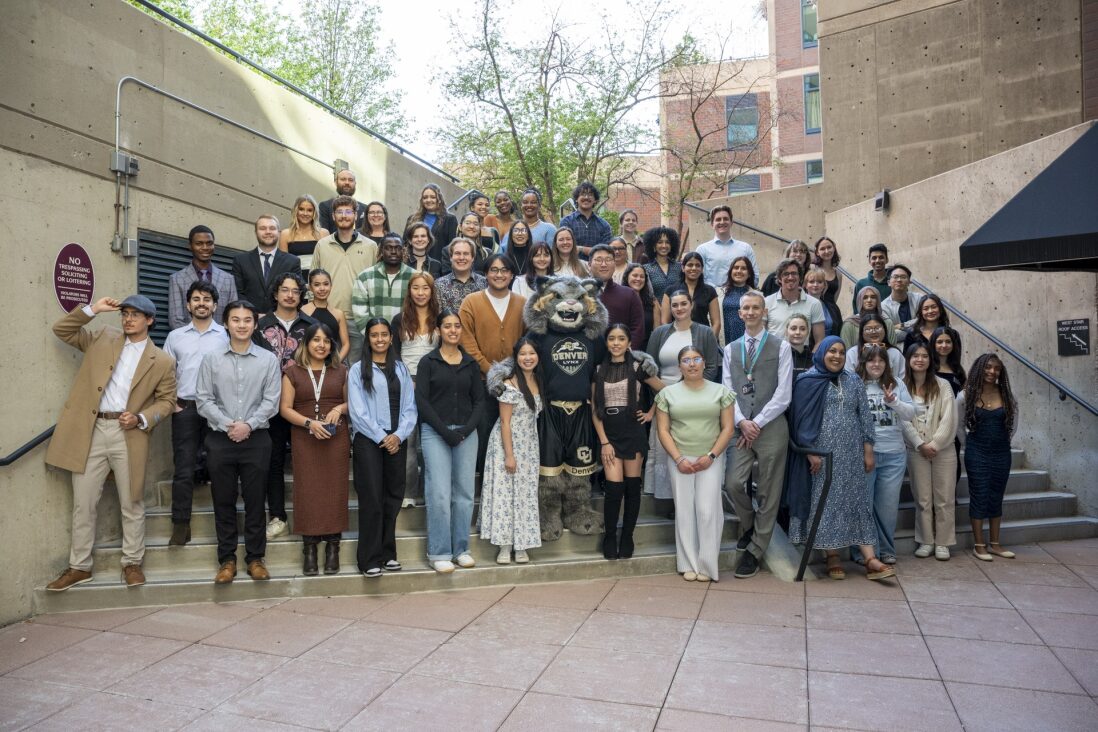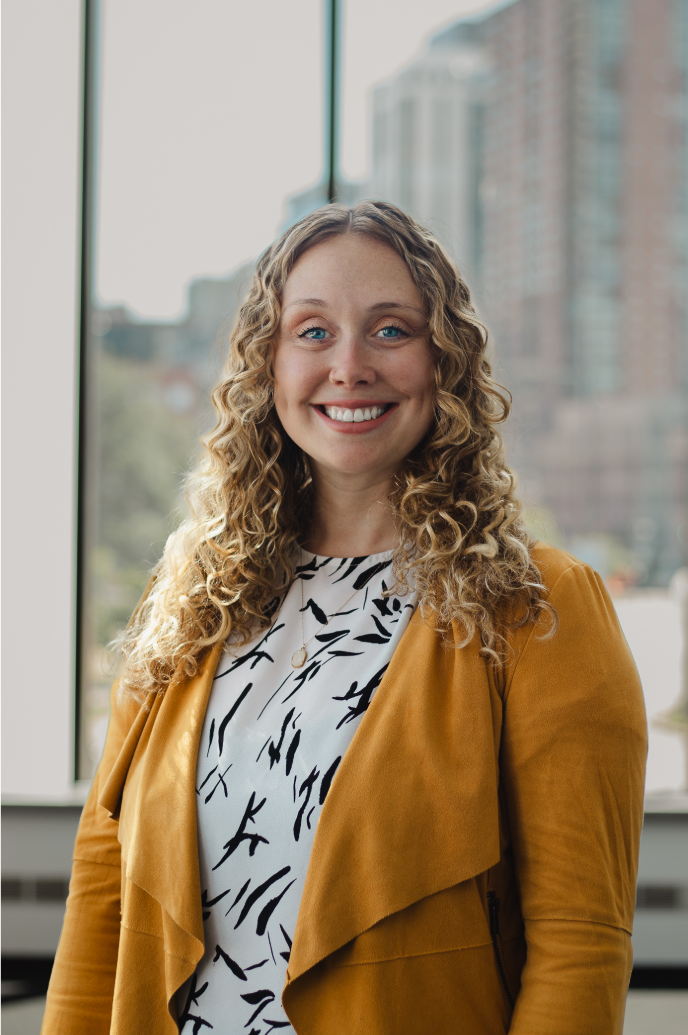On Friday, Jan. 31, CU Denver’s Student Government Association unanimously passed a resolution demanding that the administration of CU Denver take active steps to protect its undocumented and immigrant students. The resolution passed amid a weeks-long silence from university administrators on President Trump’s increasingly hostile immigration policies and racist rhetoric. In the four weeks since Trump’s inauguration on Jan. 20, CU Denver’s administration has not published any university-wide statement or publicly updated its policies in response to shifting federal law.
“It feels disheartening,” said Senator Jalissa Vega, who co-authored the resolution with Student Advisory Committee to the Auraria Board (SACAB) Representative AnnaRose Craig. “It genuinely feels like a slap in the face that there has been no statement released in support of undocumented students.”
Vega, who serves as Vice Chair of the Student Government Association’s Civic Engagement Committee, is a first-generation student with a cultural background in Mexico and Guatemala. In the first week of the Spring 2025 semester, Vega began searching for university policies or statements relating to undocumented students and ICE raids, but found little of substance. According to Vega, the most she was able to find was a vague notion that CU Denver would only cooperate with ICE if they had a warrant.
“It hit a nerve,” said Vega. “The whole reason why I came to CU Denver was because it’s a Hispanic-Serving Institution. It values first generation students, and there’s just a lot of opportunities here for the community as a whole. So hearing that, it made my blood boil, if I’m being completely honest.”
Despite this lack of clear answers, Vega initially decided to wait and see if UCD’s administration would put out a statement. However, as the days passed, Vega became frustrated with the university’s inaction and decided to take the matter into her own hands. As an elected member of Student Government, she felt she had a mandate to represent her community and the student body as a whole. She approached SACAB Representative AnnaRose Craig, who suggested bringing a resolution to Student Government in order to front the issue.
“I feel like as leaders on this campus, it’s our role to make our stance clear,” said Craig, who also works with the advocacy group American Friends Service Committee. “The reality is that students are afraid to come to campus because they are afraid that they will be detained and deported or separated from their families. People are afraid to go outside in general because of those fears.”
Vega and Craig’s resolution, which can be read in full here, calls on the administration of CU Denver to publish a statement on its website affirming the rights of all students, including undocumented students. It also calls on the university and the Faculty Assembly to affirm an “intent of non-compliance” with ICE. Finally, it demands UCD administrators hold a public workshop-type event in order to educate students on their constitutional rights. The resolution passed Student Government in a unanimous vote. According to Vega, it has been forwarded to SACAB, the CU Denver Faculty Assembly, and the CU Board of Regents.
So far, none of these demands have been met, although Vega has reported a warm reception from the Faculty Assembly.
Dr. Genia Herndon, who serves as Associate Vice Chancellor for Student Affairs, provided an administrative perspective on the resolution’s demands. According to Herndon, UCD administrators felt caught off guard.
“I think that resolution came before some conversations probably could have happened that allowed some more intentionality,” said Herndon. “[Administrators] are in a responsive state at this point, and not quite sure what’s being totally asked of them.”
According to Herndon, UCD administrators have been discussing their response to these policy changes for some time, but are waiting to fully understand their ramifications before they make a public response. Herndon also noted that during the first Trump presidency, the university had published statements similar to the resolution passed by Student Government. However, for Craig, communication between students and administrators begins in the public eye.
“The avenue that exists to communicate in a way that is public and on the record and clear is through resolutions,” said Craig. “And that is what we have been told this entire time. I feel like the resolution was pretty clear, and it also did start the conversation. [Dr. Herndon] is in our meetings, and I don’t really understand why our meetings can’t be a place for that conversation, too.”
According to Craig, UCD administrators have previously attempted to move discussions out of Student Government’s weekly public meetings and behind closed doors, where the topic tends to become more abstract and less action focused.
For Herndon, taking public action requires a consensus to be reached beforehand. While she acknowledged the demand for the university to take a public stance on immigration, she also claimed that some students have expressed a fear that taking such an action could make CU Denver a target of the federal government. According to Herndon, this could result in the loss of federal grants, which provided about $17 million for CU Denver’s 2023 budget and fund programs like the Phoenix Center and TRIO.
Vega has heard a different sentiment in her conversations with students.
“A lot of [students] are feeling scared and hurt,” said Vega. “They want a university that supports them. They want to feel heard.” According to Vega, many students are afraid to come to campus because of the threat of ICE.
Craig reported a similar mood from the student body.
“I have had conversations with a lot of people on this campus, and I have not heard anything like that,” said Craig, referring to Dr. Herndon’s claim. “That’s not to say that people don’t feel that way, but most of the people I’ve spoken to are just wondering if this university has their back or not.”
Craig also feels that the university’s federal funding is at risk whether or not the university takes a public stance on immigration, citing the university’s commitment to become an ‘equity-serving institution’ by 2030. According to UCD’s 2030 Strategic Plan, the university aims to create a socially equitable campus environment by “improving our systems to actively support minoritized people and historically marginalized identities in order to reduce bias and create and sustain equity” as well as “redefining success through a lens of justice, equity, diversity, and inclusion.” The Trump administration has threatened to rescind federal funding from universities with similar DEI initiatives. In response to these threats, the CU system website deleted its DEI page on Jan. 23, although CU Denver’s page is still up.
Craig believes that UCD’s silence on attacks on immigration is inconsistent with its 2030 commitments.
“I’m curious to see if they are just going to get rid of that whole idea of becoming an equity-serving institution because they’re afraid,” said Craig.
CU Denver’s lack of active response to the Trump administration’s immigration policies is reflective of a broader lack of response from the CU system as a whole. Although the CU system has provided information on changes in federal law through its Office of Government Relations, these updates do not indicate if or how CU will respond beyond restating previously existing university policy. Such policies include advising students and faculty approached by law enforcement or government agents seeking information to direct those authorities to campus police. It also states that the records of undocumented students and employees are generally protected under FERPA. Similar websites for individual universities within the CU system (Denver, Anschutz, Colorado Springs, Boulder) also lack any indication of response beyond existing policy and repeated promises that administrators are closely monitoring the situation within the federal government. No CU school has published a university-wide statement clearly outlining where they stand on immigration or to what extent they will cooperate with ICE if officers come to campus with a proper warrant.
CU system President Todd Saliman obliquely referenced this uncertainty in a newsletter published Feb. 3.
“As we navigate the federal government transition, some people are asking, ‘Where does CU stand?’ Let me be clear: We stand with Colorado,” Saliman writes. While Saliman praises Colorado’s diversity and reiterates CU’s commitment to all communities, he also writes, “In the context of new federal directives, we will adhere to lawful orders from the federal government while not preemptively backing away from existing efforts that help us deliver on our mission.” Saliman goes on to highlight academic programs at each CU school, although none of the programs he points to have a DEI element to them.
Upon reading Saliman’s statement, Vega said, “At least it’s something, but it’s still not nearly enough.”
Vega and Craig both expressed doubt that the CU system or CU Denver’s administration will take any action pertaining to the demands of their resolution. However, both were optimistic about non-administrative initiatives on campus, including Student Government’s informal ‘know your rights’ committee, which plans to host an event in the coming weeks. Other organizations, such as United Campus Workers, have held ‘know your rights’ events which are free and accessible to all students. In addition, UCD’s political science department hosted an open dialogue for community members to discuss the contemporary political climate on Thursday, Feb. 13. For Vega and Craig, these student and faculty-led events are the linchpin for building community and resistance on campus.
“If you have a voice, and you’re a first generation student, it’s scary,” said Vega. “But now’s the time to use the voice. Now’s the time to not be scared. And that’s so hard. It’s so hard not to be scared of these times, what’s gonna happen to you, what’s gonna happen to your family, but at the end of the day, coming together as a community is the first step.”


















